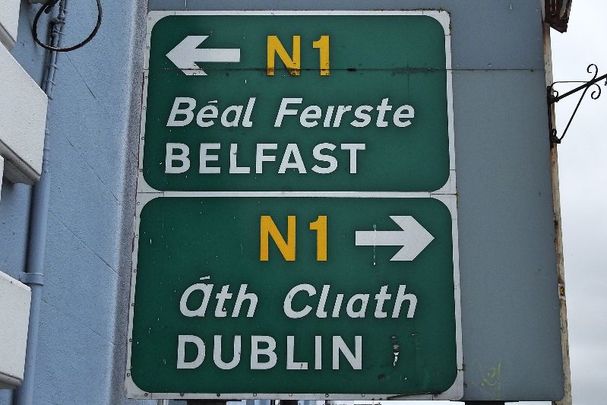The Irish Times recently ran a remarkable series of articles that concluded Northerners are more connected to the South than southerners are to the North.
"Little interaction between people living North and South, new polls show," a front-page story in the Times put it.
#2 Two-thirds of people in the Republic say they have no friends in Northern Ireland, more than 80% say they have no relations there & more than half have not travelled across the Border in past 5 years, according to new @Arinspoject /Irish Times research https://t.co/0OKR98gRwi
— The Irish Times (@IrishTimes) January 28, 2023
Well, come to think of it, I have little enough interaction with people from South Dakota or Illinois say, but it would be a stretch to extrapolate from that to presume a disinterest in our national unity, or in their political and social well-being, say.
The Times was just getting started, however. "Two-thirds of people in Republic have no friends in Northern Ireland, survey shows," a follow-up headline ran. At this point, it was just getting silly.
Do two-thirds of people who read The Irish Times have friends living north of the Liffey? What is all of this sudden north-south navel-gazing all about really? Who signed off on this series of articles and insights? And what did they think it proved?
It would be useful to redo this poll properly, and provide full breakdowns for the North West and border areas.
— Garbhán Downey (@Garbhan_D) January 28, 2023
You will find the complete opposite to be true. ‘North-South’ interaction is increasing all the time. pic.twitter.com/VMmQhuxyiG
It turned out that Pat Leahy, the Times political editor, wrote the 'two-thirds story,' citing statistics complied by ARINS (Analyzing and Researching Ireland, North and South) a joint academic project of the Royal Irish Academy and the University of Notre Dame, in collaboration with The Irish Times.
There's a bleakly funny aspect to these over-egged conclusions. It reminds us that to the partitionist mindset, the discovery that there have been some regrettable consequences to partition, is still quite surprising and newsworthy.
And do two-thirds of the people who read The Irish Times have no friends north of the Liffey? What the hell is this really? Who signed off on this? What in under god did they think it even proved? https://t.co/jREkntypdk
— Cahir O’Doherty (@randomirish) January 28, 2023
But as a person raised in Donegal, I would like to counter that the interaction between people born on either side of the border in Ireland has always been much more intense and frequent than the researchers have uncovered here.
I was a witness to a great deal of cross-border exchange between the people of Derry and Donegal in the White Strand Hotel dances in Buncrana for example, particularly whenever the DJ broke out Paul Anka's ghastly smoocher "(You're) Having My Baby" during the slow set.
I think the often Dublin-centric views of the people who write for The Irish Times can unintentionally lurch toward self-parody, unfortunately. It can be a bit like looking at a map drawn by people who have made strong impressions of a place they rarely visit - that usually won't do much more than confirm the already held biases of the people who drew it, but to the people who drew it, it can be oddly comforting.
But let me break it down still further. People who live in Cork don't often drive to Donegal, and vice versa. It's a very long drive and – because of partition – the motorways and train lines necessitate a long diversion via Dublin or Galway.
But we should not extrapolate from that to infer any animus toward - or lack of interest in - seeing either place, just that it can require a steely determination to pursue.
Can't believe people in the north don't just hop on a train at the weekend and visit their mates down south pic.twitter.com/pVnR93taJJ
— Brian Críostoir (@atlanticpotion) January 29, 2023
Personally, I would welcome a high-speed train – or indeed any direct train - between Donegal and Dublin. It would help reduce the decades-long geographical and social isolation that the Irish Times ironically laments.
For decades, the prevailing partitionist mindsets in Belfast and Dublin have seen Donegal as a kind of phantom limb, as a place long surrendered figuratively and literally to partition. It's past time that stopped.
For decades, both jurisdictions didn't see the point of doing anything to change Donegal's isolation, because ironically it was isolated. It's a Catch-22 that neither city seems to truly appreciate.
So instead of writing confirmation-bias-based articles, wouldn't it be better and more innovative to challenge all the somnambulist partitionist thinking?
Looking at the latest Red C polls that put Sinn Féin on course to become the largest political party in Ireland may not be welcome news in some of the leafy suburbs of Dublin, but the solution found in trying and silence or stymie all debate by suggesting that we are possibly all better off leaving a united Ireland – and each other - well enough alone.




Comments